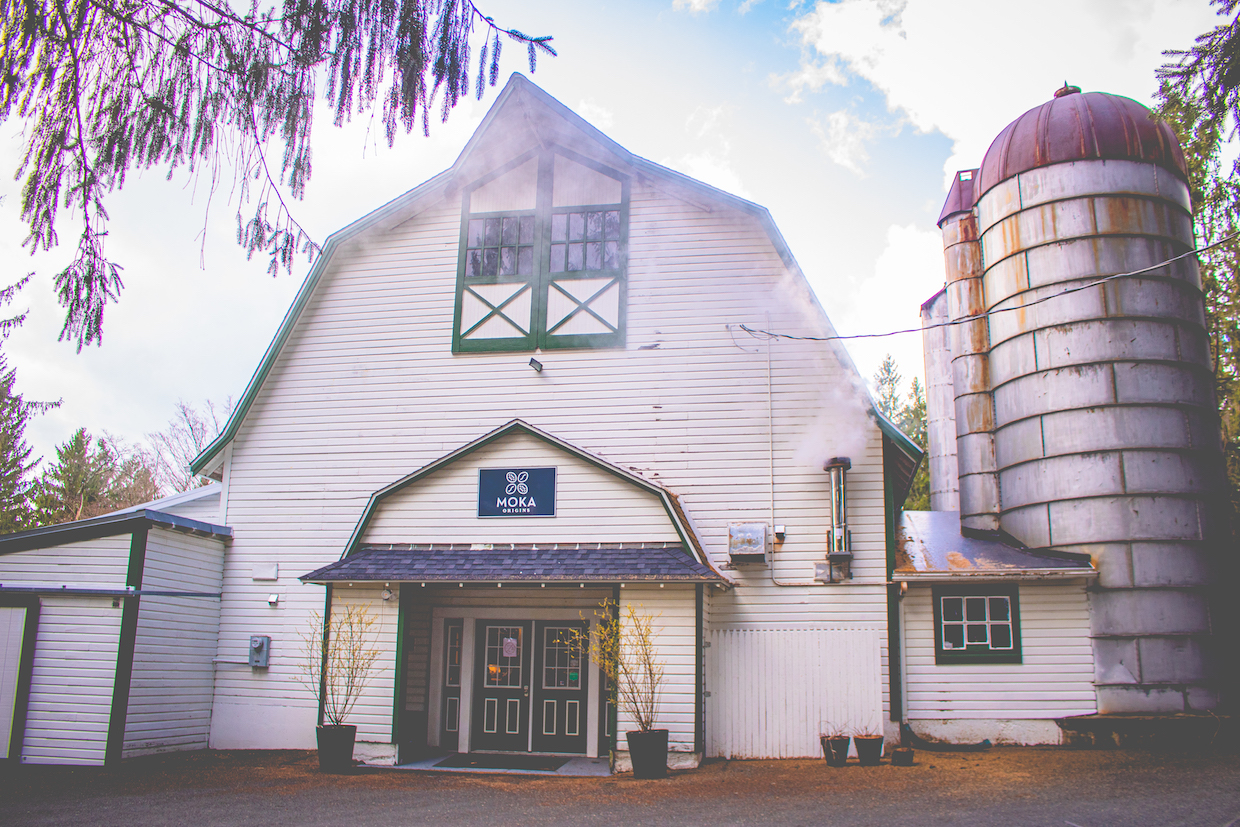
The Moka Origins converted barn roastery in Honesdale, Pennsylvania. All photos courtesy of Moka Origins.
Some coffee companies that have their roots planted at both ends of the supply chain may be feeling the COVID-19 pandemic approaching from multiple angles.
One example is Pennsylvania coffee roaster and chocolatier Moka Origins, which is trying to help where it can close to its home in the Pocono region, while also leading donation and education efforts at its second home in the West African country of Cameroon.
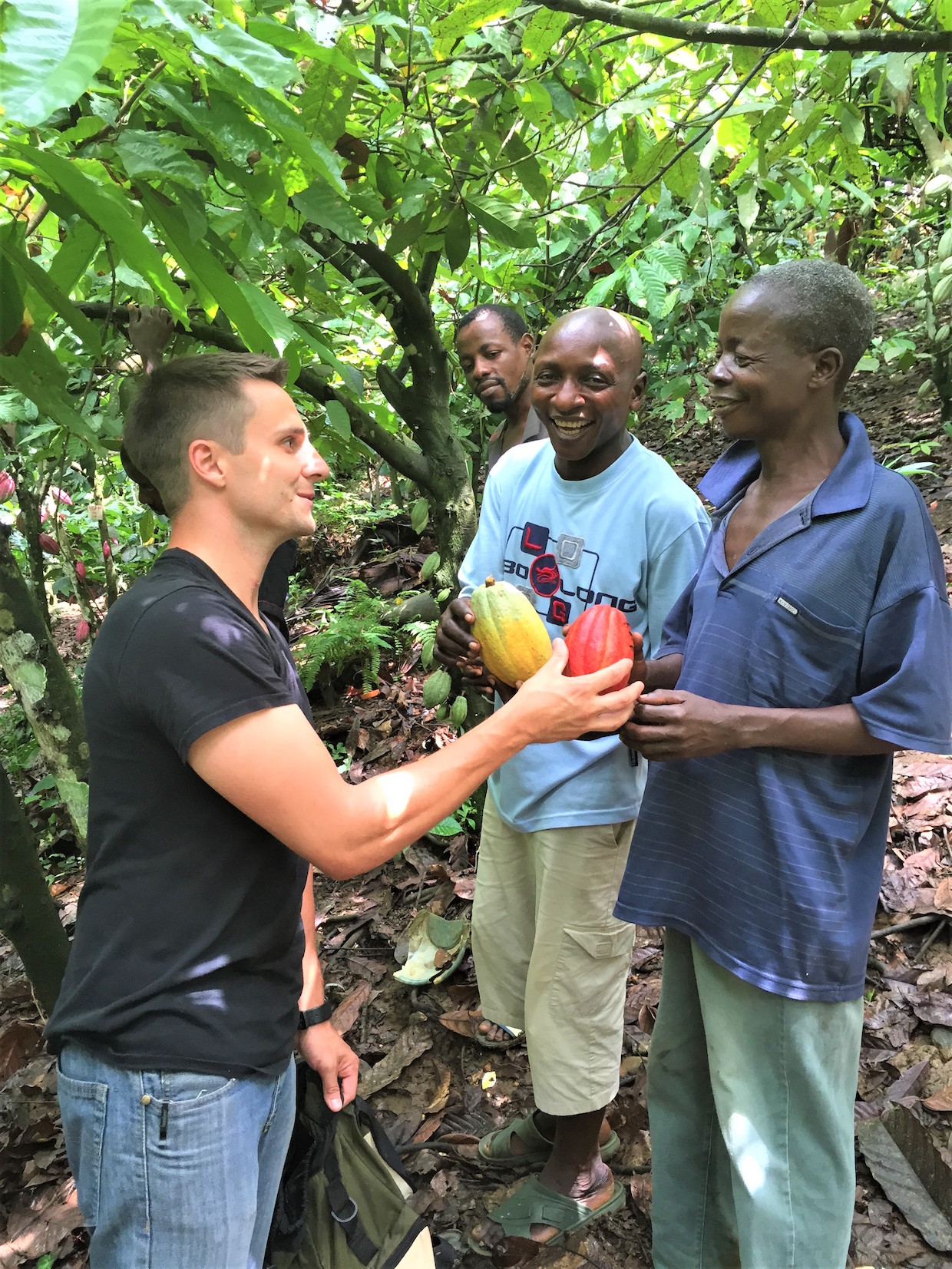
Moka Origins Co-Founder Jeff Abella with cocoa farmers in Cameroon.
Moka Origins, founded by Founded by Jeff Abella and Ishan Tigunait, has donated 100 pounds of coffee to the hospital staff at Wayne Memorial Hospital in Honesdale, and 100 pounds of coffee to The Cooperage Project, a local nonprofit community center. The company has also sent free coffee to wholesale accounts to provide them with extra inventory.
Additionally, Abella and Tigunait’s farm in Cameroon, Moka Farms, has donated more than five thousand pounds of food crops to local farmers and communities affected by COVID-19.
“Our team is also educating farming communities on sanitation and other preventative measures,” Abella told DCN. “They’re also handing out bars of soap.”
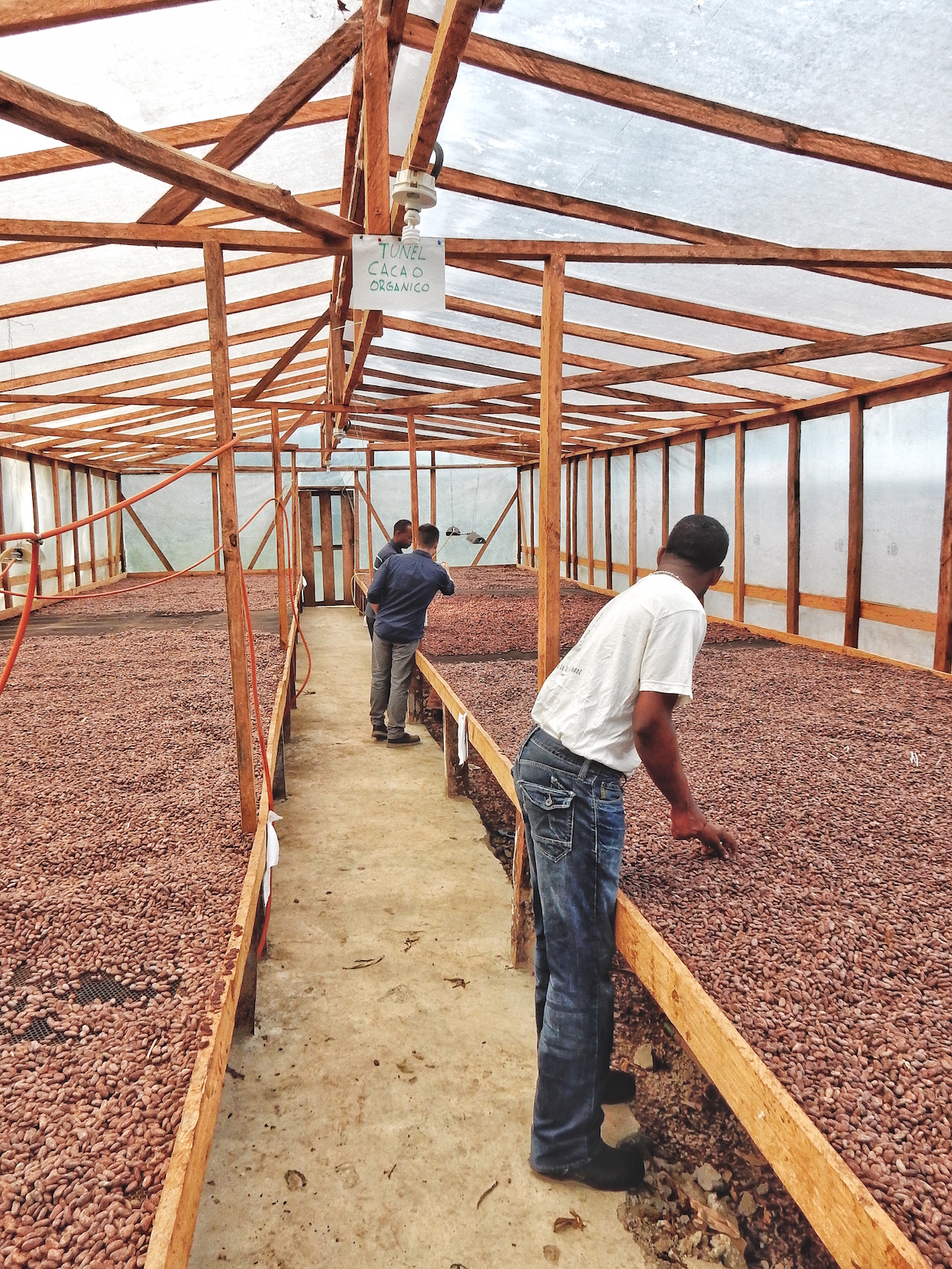
Cacao drying beds at Moka Farms in Cameroon.
All this came just weeks after the company had planned to open its first retail cafe, a project that was abruptly put on hold by the COVID-19 pandemic response.
When it does finally open, it will have been a long time in the making for the mission-driven company, whose own origins date back 12 years to when Abella and Tigunait met doing international relief work.
“The coffee farming families [in Cameroon] have owned their land for generations. We were working towards getting them help from local agronomists and aligning educational resources for them,” said Abella, adding that farmers were encouraged to diversify to add other cash crops. “Coffee isn’t very lucrative in Cameroon but a lot of the medicine used in hospitals is derived from herbs grown domestically.”
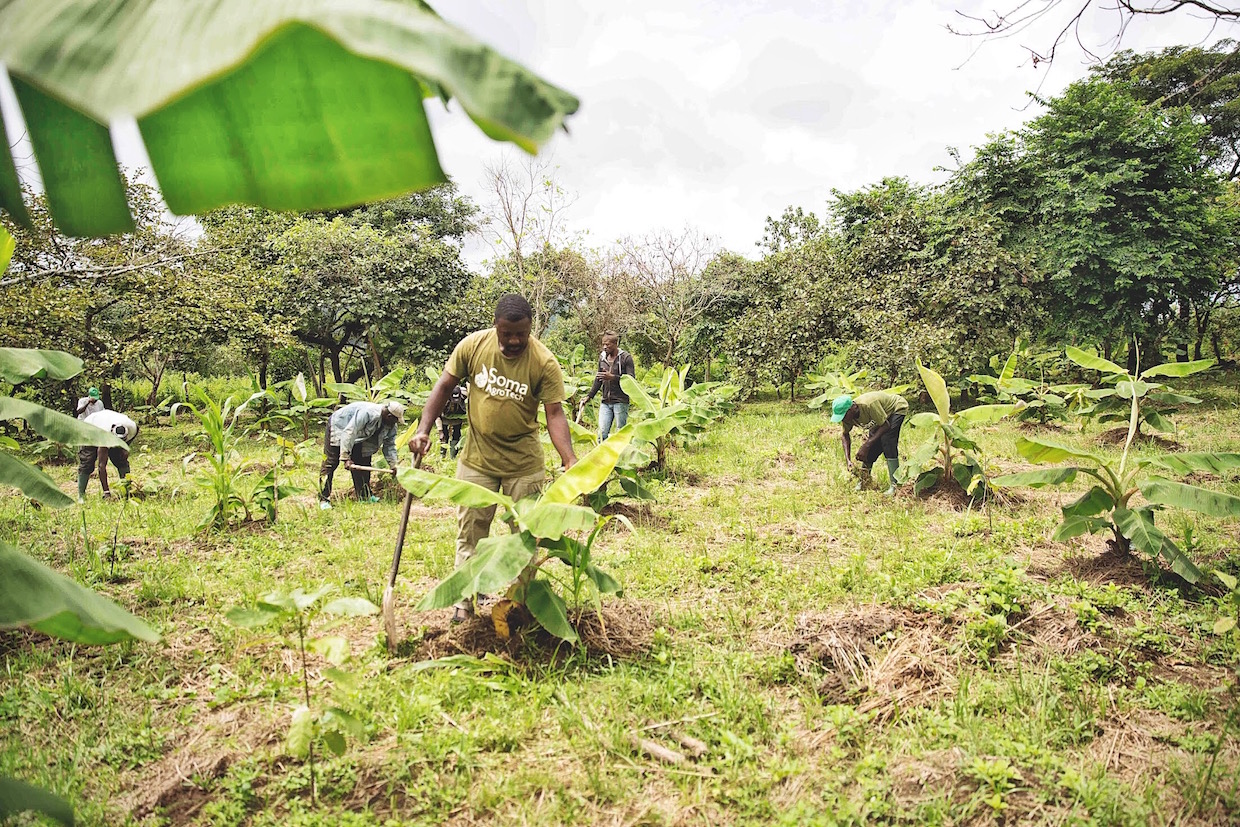
Moka Origin farms Manager, Ngong Edwin working on Moka Farms.
In 2015, the duo decided to open their own farm and education center in Cameroon, Moka Farms, with the goal of growing coffee and cacao, and serving as a farm-and-field school for neighboring farmers.
“Our goal was to be as high-quality as possible,” Abella said of the farm operation, which also supports other local farms in the production of both arabica and high-elevation robusta. “We also grow bananas, mangos, and medicinal herbs alongside the coffee.”
One modest addition to the farm operation, a Behmor home roaster, proved to be a huge benefit to the crew in Cameroon, according to Abella.
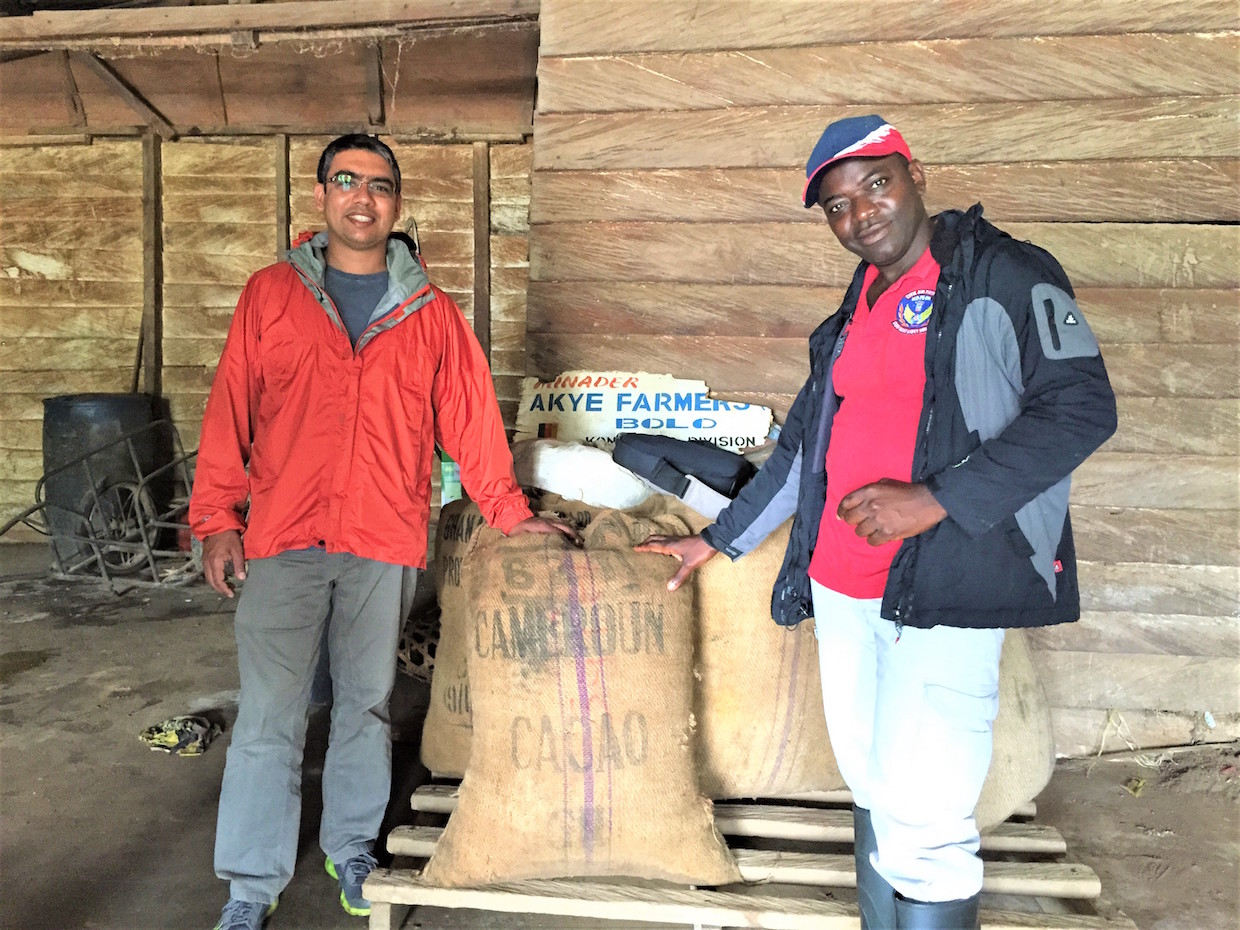
Ishan Tigunait with Ngong Edwin
“The onsite roaster was a huge help to our management team, which is able to roast the coffee and cacao and make improvements to the crops throughout the year,” Abella said. “It’s also a great tool to show other farmers what their coffee and cacao tastes like.”
In 2017, Abell and Tigunait decided to highlight the fruits of that labor by establishing Moka Origins in a former dairy barn on the grounds of the Himalayan Institute, a yoga and meditation retreat.
Coffee and cacao are primarily sourced from Moka Farms and other cacao producers in West Africa before they’re roasted on a 15-kg Mill City Roasters machine.
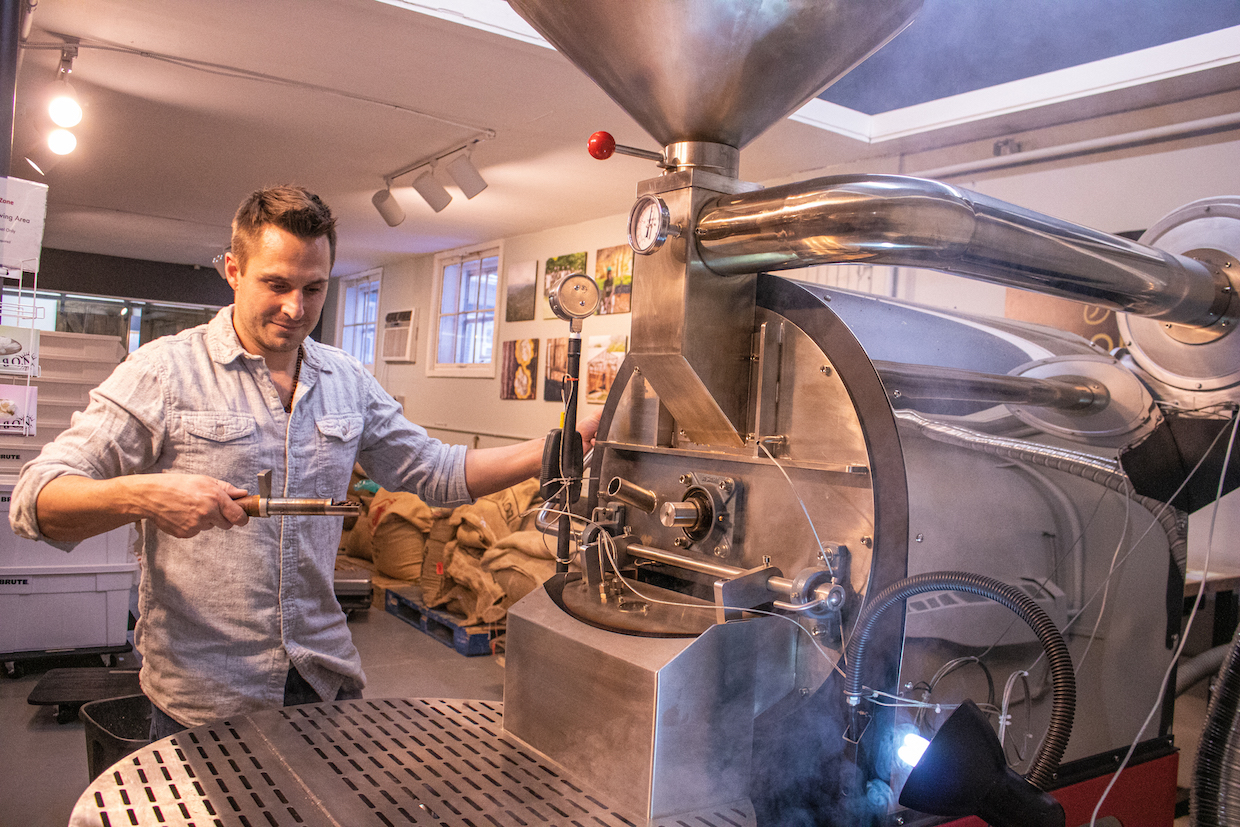
Abella at the Moka Origins roastery in Pennsylvania.
“The Mill City allows me to slow the drum speed way down, which is better to roast the cacao,” explained Abella. “The cacao is only roasted to about 270º for roughly 45 minutes. Then I do a dry burn for about an hour before the coffee is roasted.”
While present at the start point and end points of coffee and cacao, Moka Origins has no intention of becoming fully vertically integrated, as it relies on numerous importers to facilitate coffee delivery and provide fresh greens.
“We don’t have the volume or resources to import [our coffee] ourselves,” Abella said. “And we don’t want to be commodity brokers… There are companies that handle the logistics very well already. For us, it’s more about making sure that the product being sold is adding more value back at origin.”
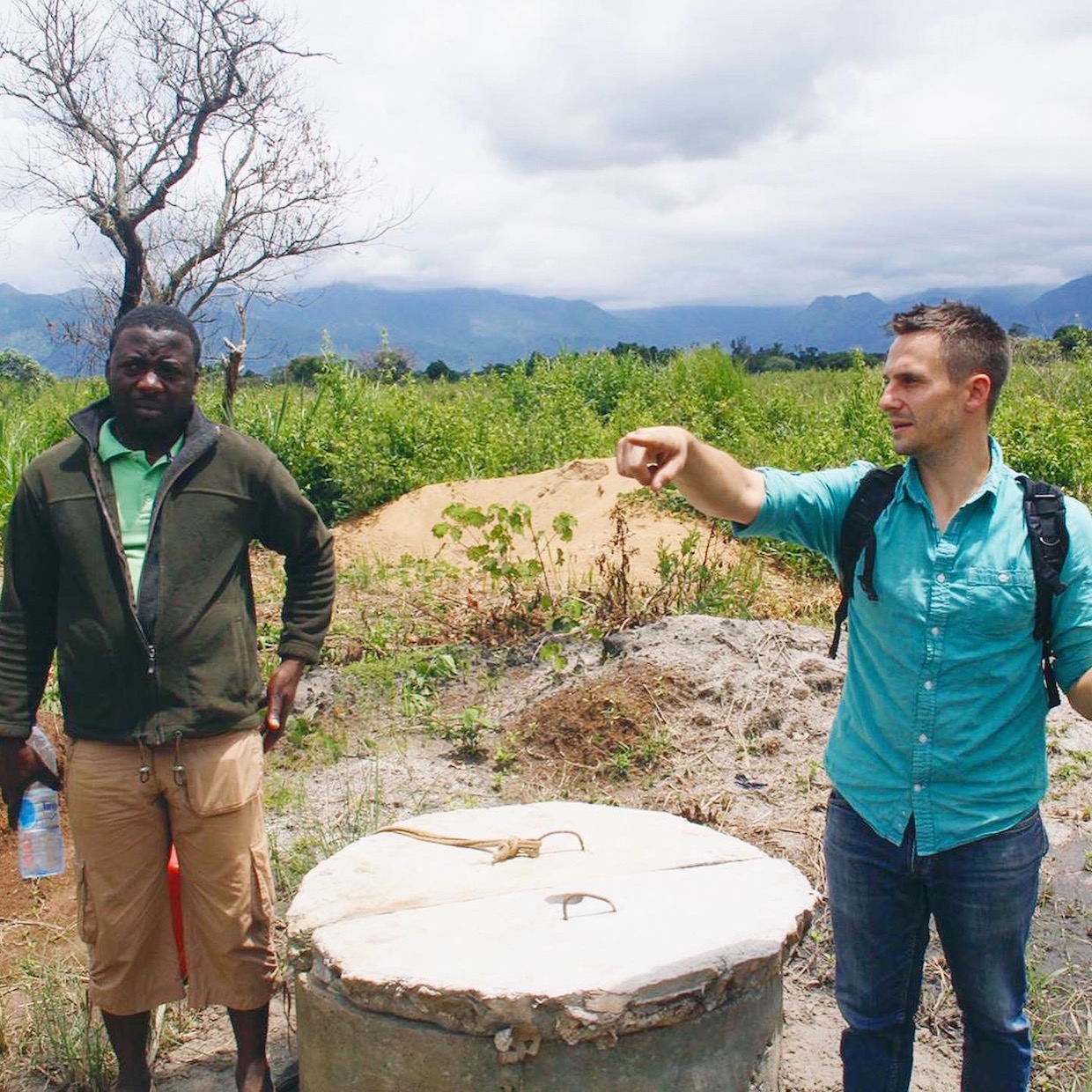
Abella and Ngong Edwin in Cameroon.
The company hopes to soon capture that value at an on-site roastery cafe inside its current converted barn, while Abella said other coffee-and-chocolate retail partnerships may also be in the works. But first, once some measure of normalcy returns, Abella and Tigunait will themselves return to Cameroon to shore educational resources for their farmer partners in West Africa.
“We are extremely passionate about coffee,” said Abella. “But the agricultural work we do in Cameroon will always be at the forefront of our work.”
Moka Origins is located at 952 Bethany Turnpike, Honesdale, Pennsylvania.
Craig Batory
Craig Batory is a writer, marketer and coffee professional working and
living in Detroit.






Comment